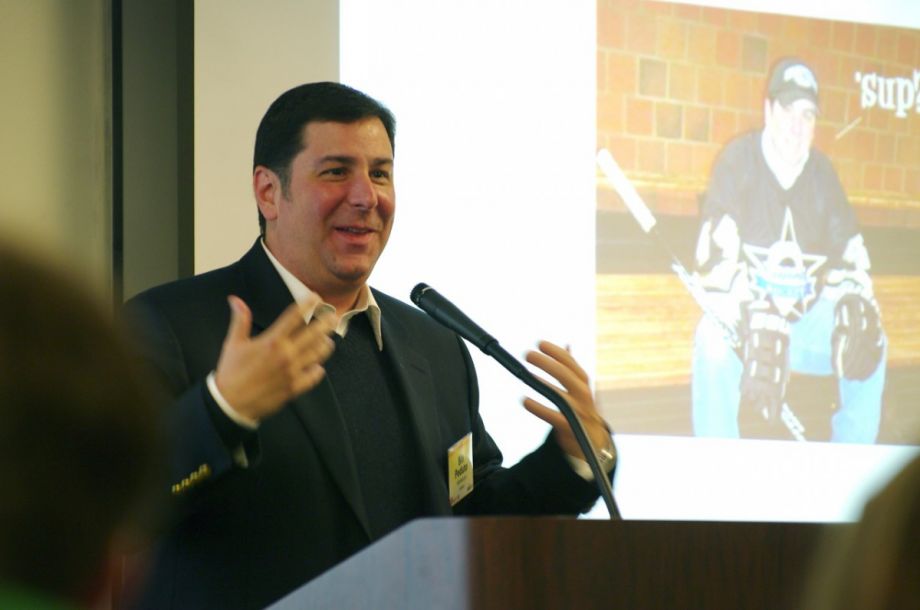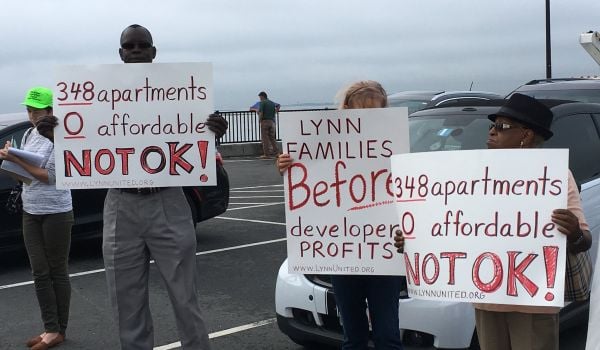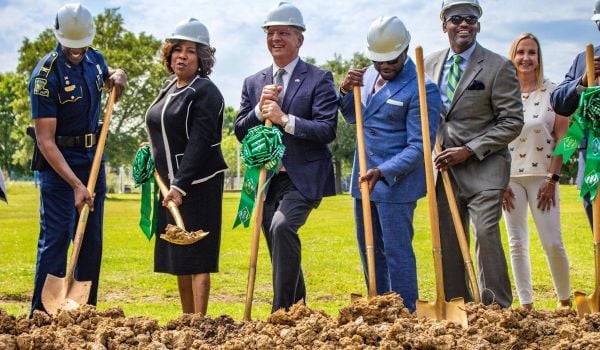After nearly two decades as either a staffer or city councilmember, 49-year-old Bill Peduto became mayor of Pittsburgh at the start of this month. He replaced a mayor who was very young — fellow Democrat Luke Ravenstahl, who declined to run again, was just 26 when he assumed office in 2006 after the death of his predecessor— but who was criticized for being, as the local CBS station put it, “chronically absent.”
Peduto, meanwhile, is known for having rather more focus. He kept a poster of the Tiananmen Square tank-resister on his office wall, had run for mayor twice before, and won this time on the promise of creating “The Next Pittsburgh,” which would have “the first progressive administration for a Rust Belt city in America.” Making that happen, Peduto said, demands innovation. He’s earned attention of late for suggesting that the new Pittsburgh needs everything from GPS-enabled snow plows to pedestrian way-finding systems. In his very first week as mayor, Peduto got behind a proposed open government data law, proclaiming from City Hall, “We want to blow the doors of this building open.”
Central to pulling it off is Debra Lam, a former engineering consultant whom Peduto has named as his chief innovation & performance officer. Pittsburgh is, as Lam puts it, a place of “fiscal distress” that, at 300,000 people, is about half the size it was during its 1950s steel heyday. Will she be able to kickstart metrics-driven and data-enabled governing in such a city?
With the caveat that “you’re talking to me at week three,” Lam has a short version of how Pittsburgh can indeed make it happen: Break down the silos that constrain government, boost transparency and track what’s happening so you can make sure that the city meets Pittsburgh’s needs.
There is, of course, a longer version, too.
Lam left the city, her hometown, about 15 years ago for Georgetown’s School of Foreign Service. She then worked all over the world — New York, London, Hong Kong, beyond — for the global engineering and design consultancy firm, Arup. There, she says, she worked alongside 10,000 of the “best of the best” in engineering, design and planning.
But she met with Peduto back in Pittsburgh and found his vision intriguing. More and more people were doing what she had considered: Taking experience gained elsewhere and putting it to service in Pittsburgh. The notion of a chief performance officer was fairly new and untested — President Obama appointed the country’s first in 2009 to some fanfare, but by all accounts the position is right now unfilled. Lam, though, sees it as making a lot of sense on the ground, in the context of a city. The day-to-day demands of running a city mean that there’s a lot to answer for, and to track. “You’d never have a local government shutdown because of budget negotiations,” she says.
That said, one lesson she learned along the way was a two-parter: There’s only so much pushing a consultant can do from the outside, and the most powerful determining factor in whether a city successfully negotiates change is if the mayor truly believes in its potential. Peduto is, she suggests, the real deal, with a natural comfort in actually using technology himself. Alongside developers from Carnegie Mellon, he created a local government mobile app called iBurgh. Peduto has also tweeted nearly 12,000 times, and these aren’t press releases — he uses the space to chew over ideas with those near and far.
Lam describes her portfolio as living at the intersections of “technology, sustainability and performance improvement.” What does that mean? “Trying to use data and technology to improve our decision-making process, to improve our governance and policy, to improve our budgeting, to increase efficiencies on where we spend and how we spend,” she says. Her focus, at least at first, isn’t on the “very fancy or very sexy gadget or silver bullet technological solution.” It’s on “understanding the process.” In a sign of her consultant past peeking through, Lam says her team is working on a “gap analysis” of where the city is now and where it wants to go.
Moving from the first to the second, Lam says, will require “pulling together threads,” as in figuring out how to weave together various city functions and even outside contributors that will improve life in Pittsburgh. One emblematic project is 311. The non-emergency service pioneered in New York City is up and running in Pittsburgh but, as Lam sees it, “is not optimal,” particularly when it comes to the systems now in place to gather calls, organize responses, let residents know about outcomes, and then analyze those records to learn about different parts of the city. To that end, her team includes a new data analytics manager who was formerly a Code for America fellow working with Louisville. “This is a really rich source of data,” Lam says of 311 calls and responses, but one that has largely gone unused.
One challenge when talking about “innovation” and “performance” in a city like Pittsburgh, however, is that it can ring hollow when there are inequities staring you in the face. While Google has an engineering office in the city, drawing from Carnegie Mellon and other local engineering programs, “there’s a whole segment of the population that’s not Google,” Lam says. To her, one of her juiciest opportunities in her new post is to enable and amplify the work of her colleagues on the seven-member Executive Team that Peduto has assembled, which includes a chief urban affairs officer and a chief education & neighborhood reinvestment officer. “Innovation hubs are very sexy,” Lam says, and she’s a fan of the pointed focus on increasing the tech footprint in Pittsburgh. “But they don’t address some really critical issues.”
She sees the potential of a well-oiled system that blends high tech and low tech to meet the needs of Pittsburgh as a whole. Take, again, the open data push and 311. Open data — and the broader imperative to post more of the city’s information online — can, she says, help some people in the city figure out answers to their own problems. But next to it you build out a terrific 311 system accessible by phone for people who can’t or would prefer not to tackle things through the Internet. It’s the combination that makes it work, Lam says. The 311 operator “is able to take the time and talk to you because there’s fewer calls, because some of them have been diverted to the website.”
Lam has spent part of these early days reaching out to her counterparts in cities like Boston, San Francisco and Philadelphia. Good ideas often travel from mayor to mayor — and, naturally, from staff to staff — and those cities have already experimented with many of the innovations now on the table Pittsburgh. I mention that one of Peduto’s ideas — GPS on snow plows — has gotten his fellow brand-new \Mayor Bill de Blasio into a bit of trouble. The New York City leader has been hit with charges that the city’s own PlowNYC map shows in cold-hard data neglect of the Upper East Side. Lam responds with a laugh that’s easily read as sympathetic. “It’s one reason why it’s great to have other cities spearheading this,” she says, “so that I can learn from it.”
Related: “Ace in the Allegheny,” my Forefront story on the plan to build a boutique hotel in Pittsburgh’s East Liberty neighborhood.

Nancy Scola is a Washington, DC-based journalist whose work tends to focus on the intersections of technology, politics, and public policy. Shortly after returning from Havana she started as a tech reporter at POLITICO.











